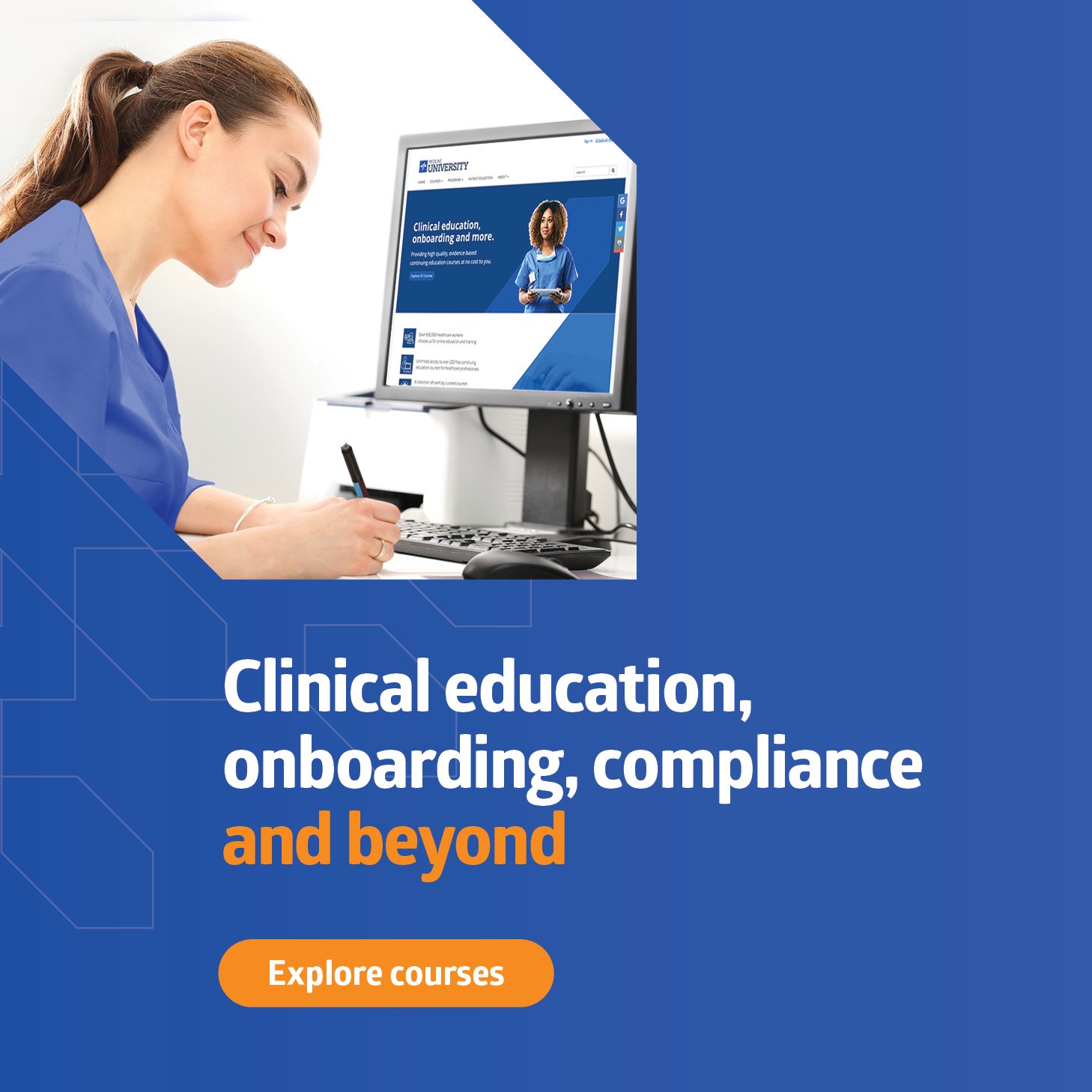Post-pandemic changes in healthcare: We’re just getting started

By Newman, MBA-HM, BSN, RN, CCRN, VA-BC | February 9, 2023
In late December, the Joint Commission announced a “major standards reduction” – the elimination of 168 accreditation standards (14%) and the revision of 14 others – “to streamline requirements and make them as efficient and impactful on patient safety, quality and equity as possible.”
While not diminishing Centers for Medicare & Medicaid Services (CMS) regulations and guidance, the Joint Commission changes “provide some much-needed relief to healthcare professionals and organizations as they continue to recover from the pandemic,” said Jonathan B. Perlin, MD, PhD, MSHA, MACP, FACMI, president and CEO of The Joint Commission, in a news release.
The changes impact nearly the entire continuum of healthcare: hospitals, critical access, ambulatory health care, behavioral health care and human services, home care, laboratory services, nursing care and office-based surgery centers. And the breadth of these changes – from medication and patient safety to environmental and leadership – is meaningful as it acknowledges the impact of COVID-19 on the healthcare system.
And we’re just getting started.
Ongoing, systemic changes
The initial ripple effects of the pandemic related to infection prevention and care led to a wave of healthcare staff shortages, interruptions in procedures and protocols, rising healthcare-associated (HAI) infection rates, and supply chain issues exacerbated by inflation and raw material shortages. As a result:
- The number of inpatient surgery rates dropped by more than 7% between 2019 and 2021, while ambulatory surgical center procedures increased 10%, according to Becker’s ASC Review.
- Telehealth and hospital at home took hold, and continue to grow in popularity and necessity, with Congress recently extending public health emergency waivers for both programs.
- Rural health resources declined, with an estimated 200 rural hospitals at risk of immediate closure, according to a new Center for Healthcare Quality and Payment Reform report.
With staff shortages and limited resources expected to continue, we may need to reassess some of our care models, and rethink CMS provider reimbursement and the FDA approval processes for pharmaceuticals and products. In fact, we may need to reevaluate our entire healthcare system. Right now, we’re at a starting point, with healthcare likely to continue to evolve. Five years from now, when we look at some of the pre-pandemic healthcare processes and protocols, we know they are going to be different.
The importance of recognizing and communicating challenges
For overwhelmed clinicians and providers, recognizing the ongoing challenges amidst so much change – what’s keeping you up at night – may be the first step in alleviating stress and improving efficiencies and care. It’s also important to recognize that you are not alone, as most healthcare providers are dealing with the same staff, resource and other issues.
Five years from now, when we look at some of the pre-pandemic healthcare processes and protocols, we know they are going to be different.
An open dialogue with our partner providers allows us to identify priorities and develop viable solutions. Medline understands today’s healthcare challenges, can share experiences and solutions from across the country, and serve as an extension of your team and resources.
For example, patients are going home now much faster. How do you arm them with the the information and products they need to ensure a seamless transition to home and optimal recovery? At Medline, we regularly work with providers to identify the needs of specific populations and create custom patient kits and other direct-to-home solutions. We also offer clinical assessments to help hospitals assess and address training, procedural and supply gaps related to the prevention of pressure injuries, central line-associated bloodstream infections (CLABSIs), and catheter-associated urinary tract infections (CAUTIs). The assessments, which typically include a short staff survey, store room review and leadership interviews, are then utilized to develop training and process improvements. Often, a simple back to basics reset can improve protocols and efficiencies.
In addition to a broad range of clinical products and strategies, Medline offers supply chain and logistical solutions to optimize supply processes, ensure product availability, and mitigate the effects of future disruptions.
Over the next three to five years, the nation’s healthcare system will undergo tremendous change; change that will likely lead to new and innovative solutions, and ultimately, a more resilient and effective system of care. At Medline, we’ve continued to grow our infrastructure in an ever-changing market through increased scale and customized solutions. We ensure that our provider partners get what they need when they need it. We’re agile, responsive and invested – for the long term.
Learn more about Medline’s superpower: Agility and ScaleTM
.
Angela Newman, MBA-HM, BSN, RN, CCRN, VA-BC
Director of Clinical Services – Acute Care
Angela leads Medline’s perioperative, critical care, respiratory, and skin health clinical teams. Prior to this role, she served as Medline’s director of clinical education and clinical program manager, spearheading clinical solution initiatives including ERASE CAUTI, ERASE PNA, ERASE SSI, ERASE BSI, and safe patient handling. Her clinical experience includes adult critical care. She is an active member of a variety of clinical professional organizations, including partnerships with the American Nurses Association, American Association of Critical Care Nurses, Sigma Theta Tau, Association for Vascular Access, and the Association for Professionals in Infection Control and Epidemiology. Angela holds a Bachelor of Science in Nursing from Rush University and an MBA in healthcare administration from Western Governors University.
View Author Bio

